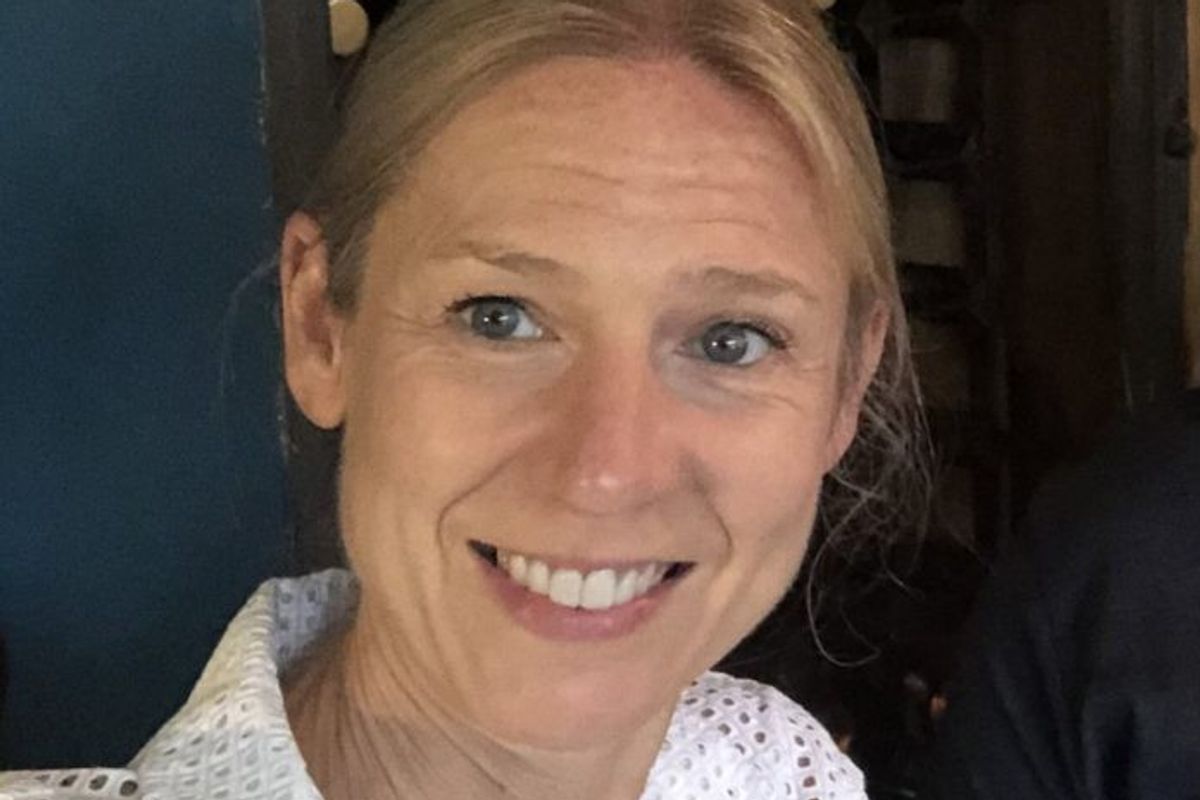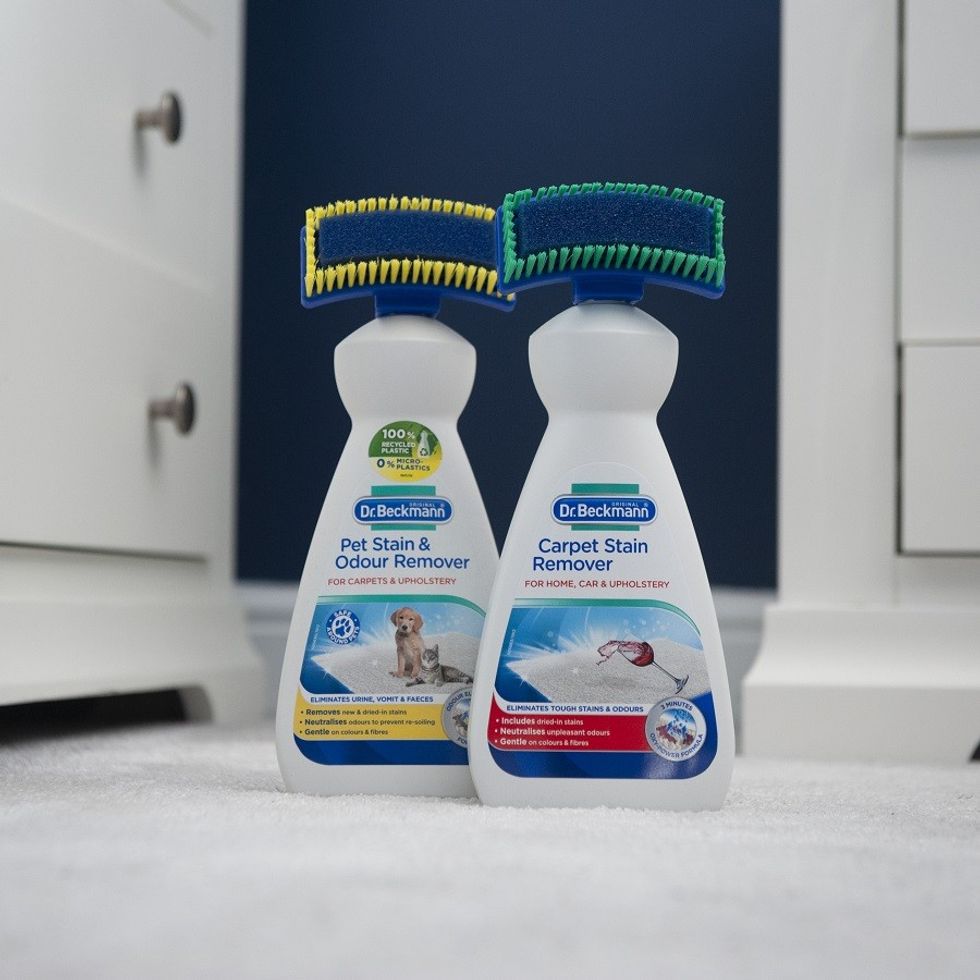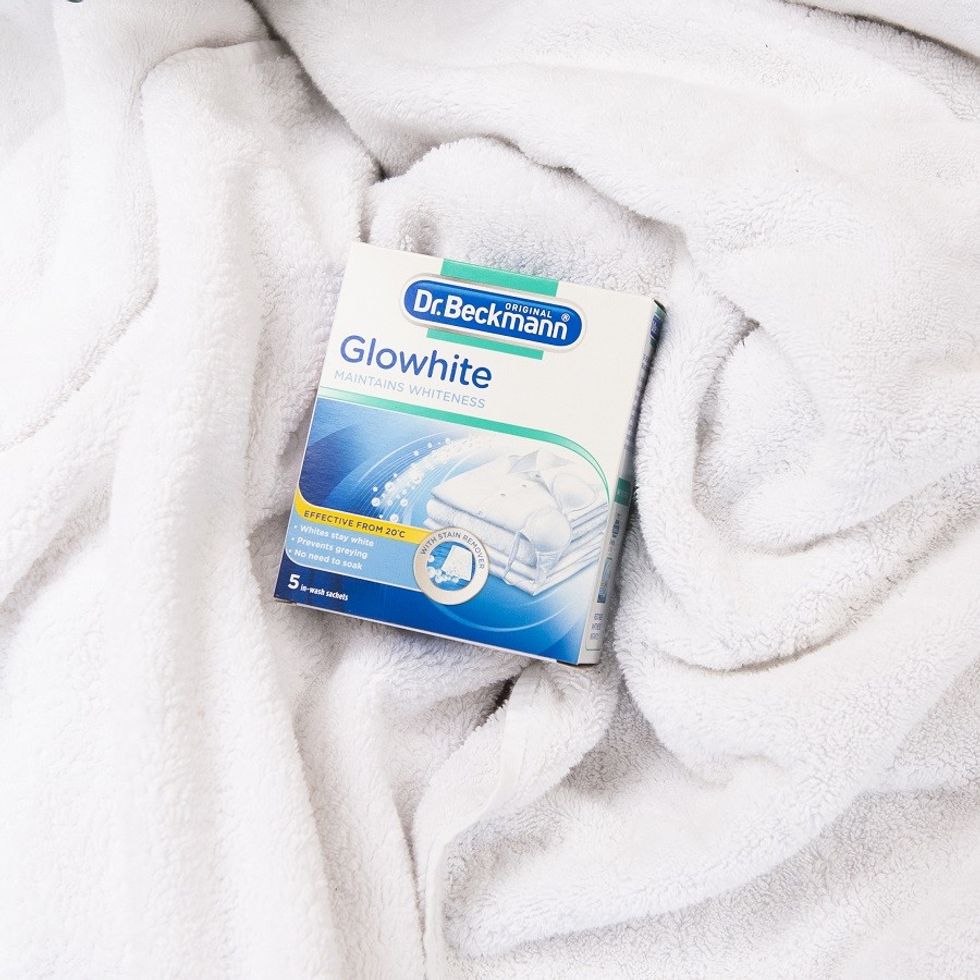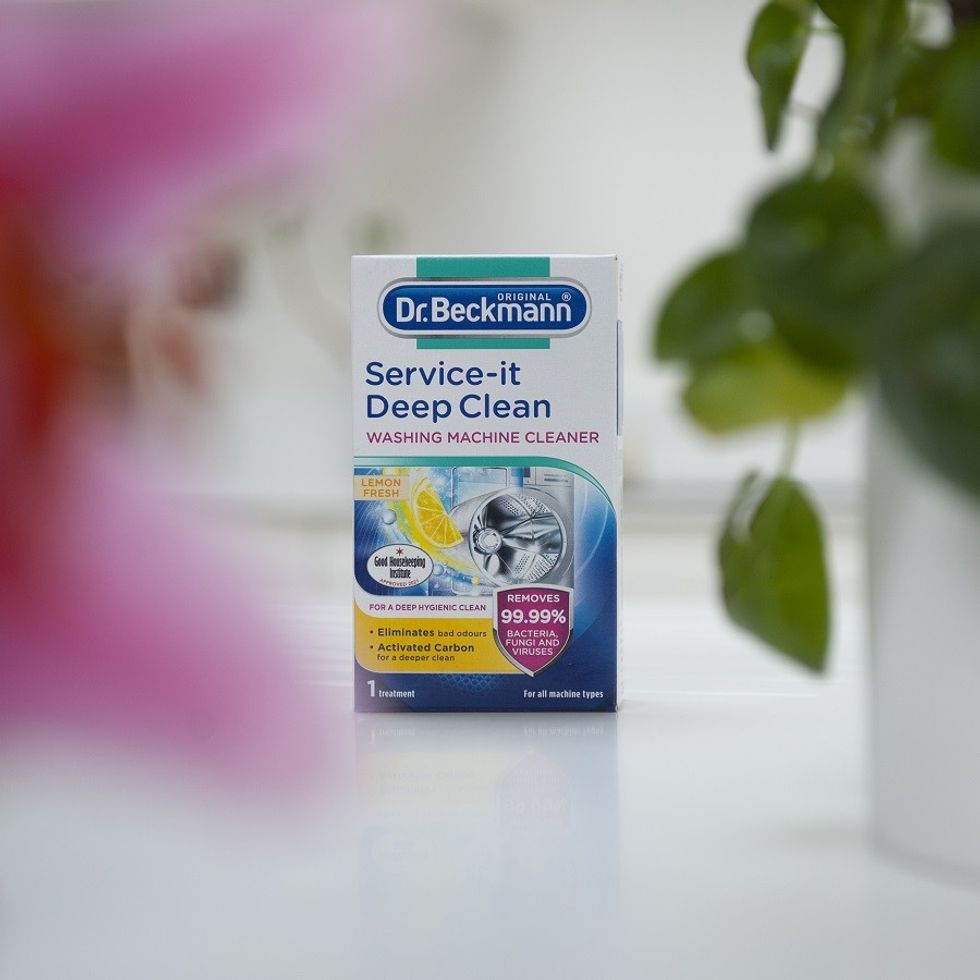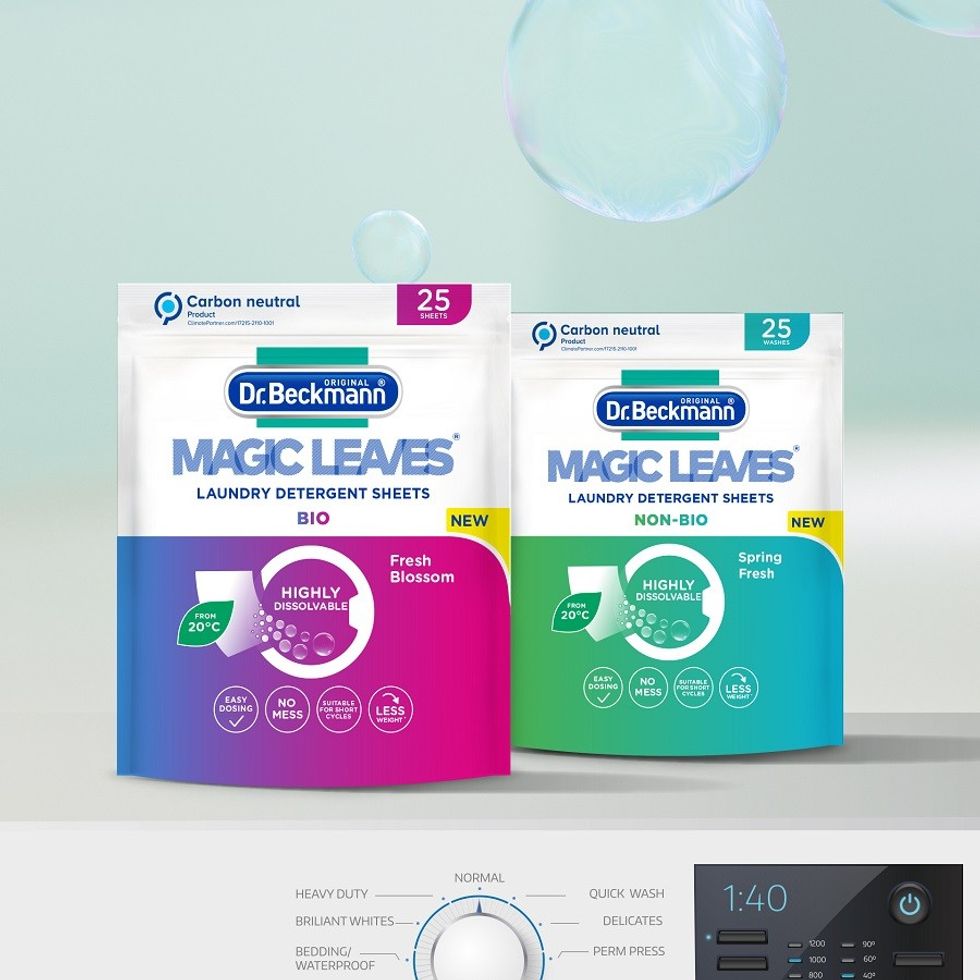ACDOCO is possibly one of the best companies you have never heard of, although some of their brands, under the Dr. Beckmann label, are likely to be very familiar. The company was established in 1919 by Harry Pilling in Bolton as the Astley Dye and Chemical Company, and it is still there today – Head Office was established in Mallison Street in 1928.
The company early on became a trailblazer in domestic cleaning and throughout the middle years of the twentieth century, bringing us some very important achievements – not least a chemical Harry discovered named Sodium Perborate, which is odourless and non-toxic, yet more effective and less damaging to fabric than bleach.
The oxygen action of Harry’s ACDO soap flakes took the elbow grease out of washday and transformed the workload of (what was back then) the Great British Housewife, and even more so when the famous Glowhite was added in the 1950s.
Bringing the story up to date, the rise of biological washing powders and liquids, with their enzymatic formulas, ate into ACDOCO’s market dominance in the 1970s, so it diversified using the “Glo” trademark and established truly national recognition for its whitening and laundry products. The “dream team” partnership with the Beckmann family was established in the 1980s not only through a shared set of values, but also through highly effective and trusted products. They now produce and distribute a range of household cleaning products, including Stain Devils, and an ever increasing health and beauty range – featuring Alpecin, Plantur and Bionsen among others – all of them highly effective, technical and great value products that remain true to the original family ethic: to sell a product you can trust, that does, superbly, what it says on the tin.
New broom
In September 2021 Alison O’Brien, a fifteen-year Kellogg’s veteran, was appointed as UK Country Manager for ACDOCO ,driving the specialist areas of laundry and household care, under the Dr Beckmann name, whilst also acting as a distributor of products and brands in specialist personal care areas.
So, ACDOCO – the big question: how do you pronounce it?
“Ak-doh-koh,” says Alison, in a gentle north-west accent – she and her husband hail from Ormskirk and decided against careers down south because they both wanted to stay in the region they loved.
It’s a big job with ACDOCO straddling the two categories of “household and health”, and moreover, Alison is stepping into a company with a long tradition and way of doing things.
“ACDOCO really sees itself as the forerunner of what was the original washing powder," she explains. “But as the big behemoths of Unilever and P&G entered the laundry category, ACDO couldn't really survive the competition in terms of the marketing budgets and the spend that these huge global conglomerates had. So they pivoted the business into laundry additives, which is essentially the additives part of the category: whiteners, stain removers, toilet cleaners, washing machine cleaners, dishwasher cleaners.”
Brilliant, practical products which are often distress and impulse purchases – as well as regular basket items – that suit the convenience channel perfectly.
“The brand has seen high growth for the last five or six years, both internationally and here in the UK. Our brands seem to really weather storms well because they are great value for money, and in my view worth what you pay, and that was one of the reasons why I joined the business.”
O’Brien is well versed in selling products she believes in, and began soon after finishing her degree in History and Economics at Durham University.
"I was going to do a post-grad but I thought, I'm going get myself a little job and then decide what I'm really going to do. So I took a ‘temporary job’ at PepsiCo.”
Soon she was selling crisps to shopkeepers straight out the back of her car.
“That is literally how I started,” she laughs, “I used to go to the cash and carry at eight o'clock in the morning, fill up my car with crisps, and merchandising stands and then have to sell them in the day, so anywhere between 12 and 18 calls. It was no mean feat, but what it did do was teach you whether you could sell and whether you liked selling. You're at the coalface, basically. You had a kitty and you had to sell stuff and had to bring the crisps in from the car – that is what you call asking for the business.”
Alison says she learned the oldest of all the selling skills – “and I found that I was quite good at it. And I really enjoyed it in a way that I never thought I could.”
That meant goodbye to academia, and looking at O’Brien’s career, it was a great swap.
“I always wanted to go work at Kellogg’s,” she says, “because you always saw the iconic factory from the M60. And I absolutely loved Special K, it was my dream to get a job there!”
Washing is fun!
The journey to ACDOCO was a classic “Just when you think you are out, it lures you back in,” story. Alison had finally left Kellogg’s and was thinking about doing “... something totally different. But the industry propels you back – and it is my passion: I love the FMCG industry. I love being out in store – I'm quite sad like that! I read the trade press and still do my shopping in-store because I like to be out and about and see what's going on.”
So the offer to join Delta and the Beckmann family was one she couldn’t refuse.
“There's not a product I've tried,” she says with real enthusiasm of the brands now under her care, “that doesn't do exactly what it says. The efficacy of the product is so very high that it means it's not a risky purchase for shoppers. They won't be let down, and then they’ll purchase again. We are very well known and very well loved, even though a lot of people don't know about the history and the heritage of the brand. But what they do know is that it's worth what you pay. And that's as important now as it ever was.”
I concur and add that I have white shirts that have had their life greatly extended, from me pouring sachets of Dr. Beckmann's into the washing machine. These products are part of household lore.
“I'm the same, I like to look out on the line and see my whites billowing in the wind, my bedding and everything:, it sparkles when you use your Glowhite.”
Coming to this interview, my thought was that this is something of a potential golden age for a company such as ACDOCO/Dr. Beckmann, because it’s about sustainability and hygiene – both being buzzwords, coming out of the pandemic and with environmental considerations top of mind culturally speaking.
But it’s also the case that as inflation bites and the cost-of-living crisis unfolds (keeping up with the laundry metaphors), that repairs and cost savings, make-do and-mend, DIY, value-for-money, domestic arts and all that are about to enjoy a resurgence we haven’t seen for decades in our fast-vanishing cheap, globalised, disposable economy. And they are products perfect for convenience shelves, for shopping and living locally.
“We know the convenience channel really thrived during lockdown, as did e-commerce,” Alison says. “We know that those channels are important and that they continue to adapt and demonstrate their value to the shoppers as we come into challenging economic times – and our products fit right into that. If you stain your carpets now, you're probably not going to rip them all up and replace them. Instead, our products help to take stains out. But then also on the other side of it, we are pretty unique in terms of things like our washing machine cleaner, which is also a servicer. Running our Service-it Deep Clean Washing Machine Cleaner through your washing machine every month or so, helps to prolong its life and saves you a big spend down the line.”
These are the priceless but almost-forgotten tips and wrinkles from a less affluent and therefore less wasteful era, but one which it looks like we might be revisiting.
“This is the thing, and I think that is where new growth is coming from, because although our penetration and our brand awareness and our loyalty metrics increase year on year on year, we’ve still got some big white space.”
Did you just say, white space?
“Yes, did you see what I did there?” she laughs. “But it’s incredible, the number of people that don't think about cleaning their washing machine.”
Scrubs up well
ACDOCO is now a company of many brands, and the production is divided roughly between the UK, where the powders are made, and Germany, which does the liquids. Beyond that, there is the sectoral opportunity – not only Household & Laundry, but also Health & Beauty,
“The business is in two parts, really,” Alison explains. "We have Dr. Beckmann and our well-known household & laundry products.
“The other side are our distribution brands: made by other companies outside the UK, distributed here by ACDOCO. Chiefly they are Alpecin and Plantur, haircare designed to combat hair loss for men and women. And that's made by Dr. Wolff, which is a German company, a partnership founded by our owners.
Another big growth driver is Bionsen, an excellent, unique, aluminium and paraben-free deodorant, “the best there is on the market, from Coswell in Italy,” Alison enthuses. "They have many brands in Italy in the Health and Beauty category, all uniquely positioned and true to their brand promise.
ACDOCO is on a mission to spread the good news about these products in the UK – they are good value, sleek, scientific and they all work exactly as they say on the tin, without expensive and glamourous hype.
“Exactly: Another brand is fenjal, a range of beautiful bath oils, shower gels, shower creams and body spray. The brand is sixty years old this year [Inspired by the luxurious products found in Swiss Spas, fenjal was created and launched in Switzerland in 1962]. It’s not well known in younger generations. If you spoke to your grandma about it, she would know it, and the scent! It's all about the fragrance – the fragrance is really iconic.”
By this point I am almost jumping up and down, and ask urgently where we can get these products and why not everywhere yet in convenience? Accomplishing this, of course, is Alison and her team’s task.
“They’re not widely available in places like supermarkets, although you can find a good range in Boots and Pharmacies” she says. “Boots is the place where we have pretty much the full ranges of fenjal, Dr. Wolff and Coswell. Equally, if you've got a local pharmacy, they do really well on fenjal – it's just a heritage thing, there. It's not your Original Source kind of price, but it's not your Clarins, either. Crucially, it’s ‘worth what you pay’.”
This, of course, perfectly fits the recession-favoured “affordable luxury” phenomenon that the impulse channel can do very well in, whereby a shopper will treat herself to a fancy lipstick rather than an expensive new frock: fenjal from the local store instead of Chanel from Selfridge’s.
“It has huge latent potential in terms of that [older] generation, and how we access this is, we've got a great new campaign to communicate this,” says Alison.
“It's talking to and about women who are my age really, mid-40s to mid-50s but not anything like their mums were when they were our age. Because we are much younger in our outlook now and likely to live longer. So, our midpoint in life is a lot different from what our grandma's midpoint was. This means there's a huge opportunity for us accessing this generation.”
I say that I want to try out Bionsen – and that my wife is a stickler for non-carcinogenic aluminium-free deodorants.
“In deodorants they're all quite little, small brands," Alison says, explaining the highly fragmented market with a very few major players. “It's the big Sure, and other such brands taking up all the shelf space. But then if you look carefully, you'll find the more specific niche products. Bionsen is lovely, and we've been doing a campaign called, ‘It's good to sweat’ with our ambassador, Eilish McColgan the runner” – the 31-year-old won the 10,000 metre race at the recent Commonwealth Games 32 years after her mum, Liz, had also won it. Eilish then repeated the feat at the European Championships just weeks later.
“I was overwhelmed when I met her because she hadn't heard of the brand but then she started using it and loved it because of the key thing – that it doesn't block your pores like an anti-perspirant does. And people don’t know about that.”
Eilish has gone from strength to strength since she became Bionsen’s brand ambassador, and this leads me to remark that it does seem as if the stars are aligning in ACDOCO’s favour and promising some real growth opportunities in the channel.
“People want a little treat that’s not going to break the bank,” says Alison. “They might not buy Elemis or Clarins – one of those higher-end brands – but they don't want to compromise . So I think that that's where our job in the category is: to offer super products at a price, which is worth what customers need.”
The next step, then, is to increase distribution and get more of the brands onto the shelves of independent retailers – who are increasingly aware of how many potential sales lie in the household and hygiene, health and beauty categories, since the change in shopper outlook toward local living after COVID struck.
“Convenience retailers can buy direct, and they can buy via some wholesalers, but we just don't have the presence and the visibility, because I don't think this category really has been at the forefront of the convenience channel,” Alison opines.
“I've worked in impulse before and I know where it's at," she says: “Crisps and snacks, chocolate, soft drinks. That's where they make their money. We've got a big job to do, but I truly believe that there are opportunities in incremental sales and margin for convenience retailers for our best-selling SKUs.”
Which specifically?
"Things like Carpet Stain Remover: it's only a £3.50 outlay. Some of the convenience stores stock similar products that cost £7. It’s a distress purchase in my old simple eyes,” she laughs, “because if you spill something and you've not got anything to sort it, where better to go than pop down to your local Nisa or Premier store, or wherever’s near, and that you can get in an emergency.”
She notes that in many stores now, retailers either have nothing (“a total lost sale”), or they’ve got something that costs £6 or £7 – "Which again, could be prohibitive – so the customer will say, ‘Actually, I'll just pour white wine over it,’ which incidentally is the worst thing you could do.”
Bright shining future
So what’s the plan?
“I'm really trying to shout from the rooftops that it’s not a big outlay, and we're not asking for you to stock full ranges. We're just saying, give us a chance and if you stock one or two of these products, you will get incremental sales and good margin from them. Just let us show you!”
Can we then expect a lot more promotion and engagement from ACDOCO with our readers in the coming year, then?
“I think the convenience channel has really stepped up its game in recent years,” Alison says. “People have grown much more familiar with their local store, they can rely on it, they know they can shop safely and conveniently. And they want the best brands. It’s convenience stores where you're getting a lot of new innovation. You get a lot more inspiration in convenience stores these days than you ever did.”
And finally, what NPD are in the pipeline to entice us?
"Lots of innovation coming!” Alison promises. "We’ve got a great product just on the market called Dr Beckmann Magic Leaves, and it's the new way to wash clothes – essentially, it's 25 sheets that look a bit like tumble-dryer sheets. But you put them in the wash, they fully dissolve as low as 20 degrees. In terms of ease of use, it’s easy to carry, easy for the customers to put on shelf, easy to store, and we've had some great buy-in at the customer level, I'm pleased to say.
Alison says that some of the Instagram "clean-fluencers" (yes, it’s a thing) are on board already. “We're really excited about Magic Leaves and how we're going to transform washing in the coming years through this product. Gone may be the days of these big box powders and big plastic tubs.

